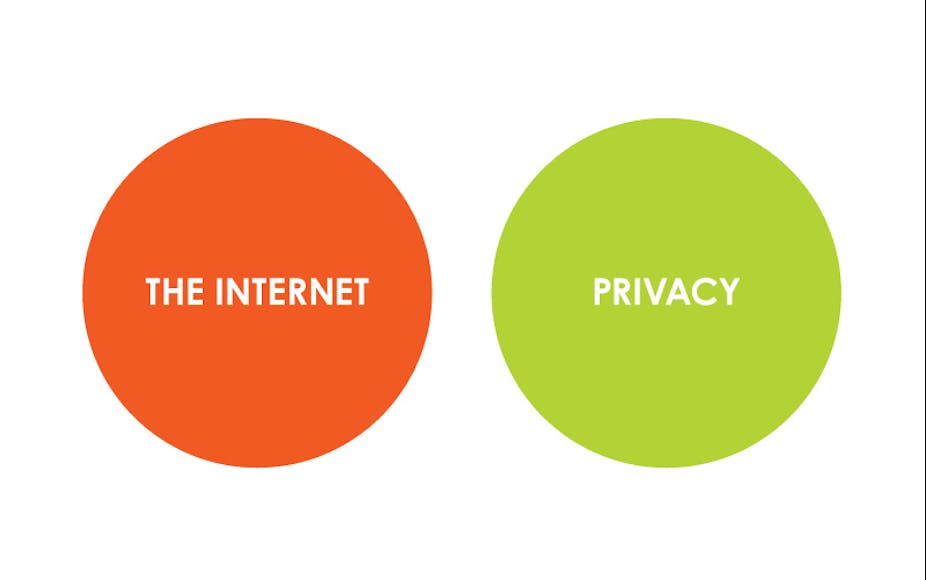The major social network sites have recently been touting improved privacy settings to allow users to customise post audiences. Google+ Circles, Facebook lists, and now Unthink’s branches are engineering solutions to the potentially catastrophic issue of the wrong people seeing the wrong post.
But these privacy settings may not be enough. A UK employment tribunal recently ruled that posting derogatory comments on Facebook merited a gross misconduct dismissal for one Apple Store employee.
Although posted to a select group of friends, one “friend” physically printed the comments and took them to the employee’s manager. The tribunal ruled the comments were contrary to Apple’s strict social media policy. The employer therefore had the right to dismiss the employee.
Tensions in reputation management
Social network sites carry traffic from members of many categories: employees, colleagues, peers, acquaintances, friends, family, lovers, and so on.
Privacy settings should to help users post according to their own category choices. But the UK ruling establishes some worrying issues for users, social network sites, and the public relations practice of reputation management.
1) The ruling establishes the precedent that material sent to a group can be printed and then shown to others. This counts as publication by the original poster to third parties.
That the original poster may have intentionally relied on privacy settings is ignored. And yet intentionality is fundamental to using these settings. Establishing groups to receive posts, or choosing on the fly, is evidence of not just a desire, but perhaps a right, to control information.
2) This ruling may also raise a litigation issue for social network sites. If an individual relies on privacy settings, but these are defeated by a low-tech workaround, is the social network site liable for fundamental misrepresentation of privacy?
The site’s owners would argue not, and refer litigants to terms and conditions about using the service at their own risk. Nevertheless, as social network sites advertise improved privacy, expectations are also building for privacy to reach beyond the service itself.
3) Corporate reputation management is increasingly moving into the personal sphere. Strict social media policies are certainly necessary to image control and must be defended to have any value.
That said, overly-zealous reputation management may leave a corporation open to charges of manipulation, subversion, and persecution. Social media managers need to tread with caution, leveraging the value of increased personal engagement while protecting the corporate brand.
The limits of engineering solutions
The UK ruling also shows there are distinct social and legal limits to even the most elegant engineering solutions. The social world reaches far beyond any given social media platform. Communication is not simply the transmission and reception of messages within a platform.
Communication is social action – it does things in the moment, it has phases and lifecycles over time, and it is part of much larger patterns.
The situation in question here played out as it did because of the social actions of those involved, not simply because of the ways in which people sent and printed posts.
The right to freedom of controlled expression
Undoubtedly, the original poster of derogatory comments about his company violated the company’s social media policy, and that was foolish and punishable.
But corporations are increasingly deriving great benefit from social network sites. Earned media (favourable coverage received outside of traditional advertising), in particular, has taken off through viral videos and responses to customers via Twitter and Facebook pages.
Social network sites also benefit. Their users are their products, sold to advertisers individually and as part of demographic aggregates.
But should any of these corporations have control of the value of social network sites? Or should users have a right to rely on information and privacy right, as proposed by Unthink?
That’s a question for you as much as anyone else. What do you think? Have your say in the comments below.

